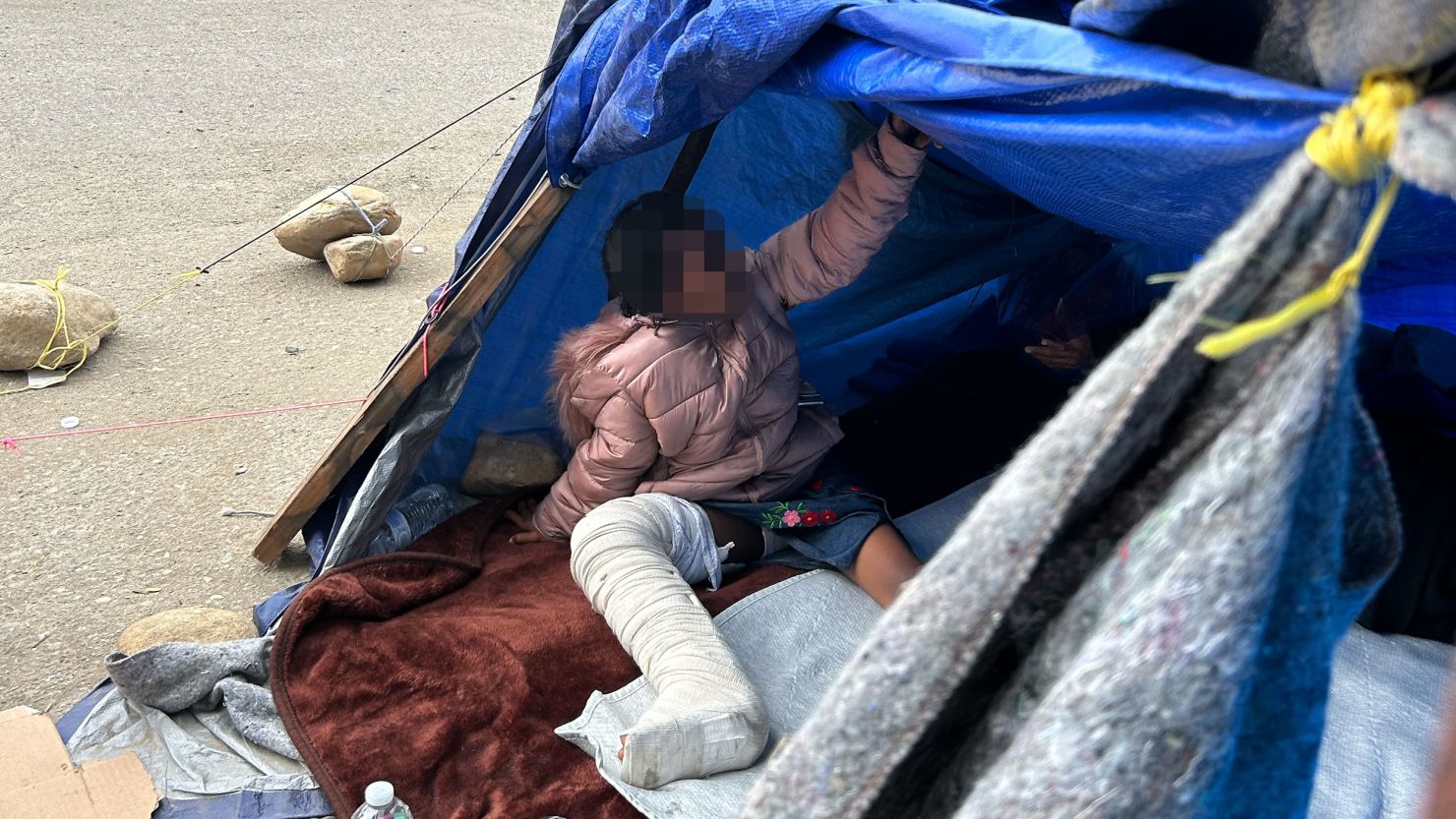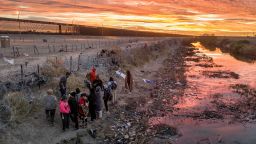The young girl from Colombia hid in a porta potty to shield herself from the biting wind and cold as she and her parents waited at a makeshift camp along the southern border earlier this month.
Border Patrol agents had directed them to the temporary camp to await making their asylum claims but did not provide any help or shelter beyond the excrement-filled latrine, according to sworn declarations filed in federal court and interviews with volunteers who were there.
As temperatures dropped, the girl began convulsing. In tears and frantic, her father wrapped her in a blanket he found in the mud and called 911, he stated in a declaration. But he spoke no English and the operator spoke no Spanish. Eventually, an ambulance arrived and transported the girl—pale and listless—to a hospital with her mother. Agents, the father said, warned him he would lose his chance at asylum if he left the camp and accompanied his family.
The episode was one of many highlighted in a court filing Thursday that takes aim at the living conditions at open-air camps near the U.S.-Mexico border in California. Federal immigration officials have directed migrants to those camps but have failed to provide adequate food, water, shelter and medical services, children’s rights lawyers say.
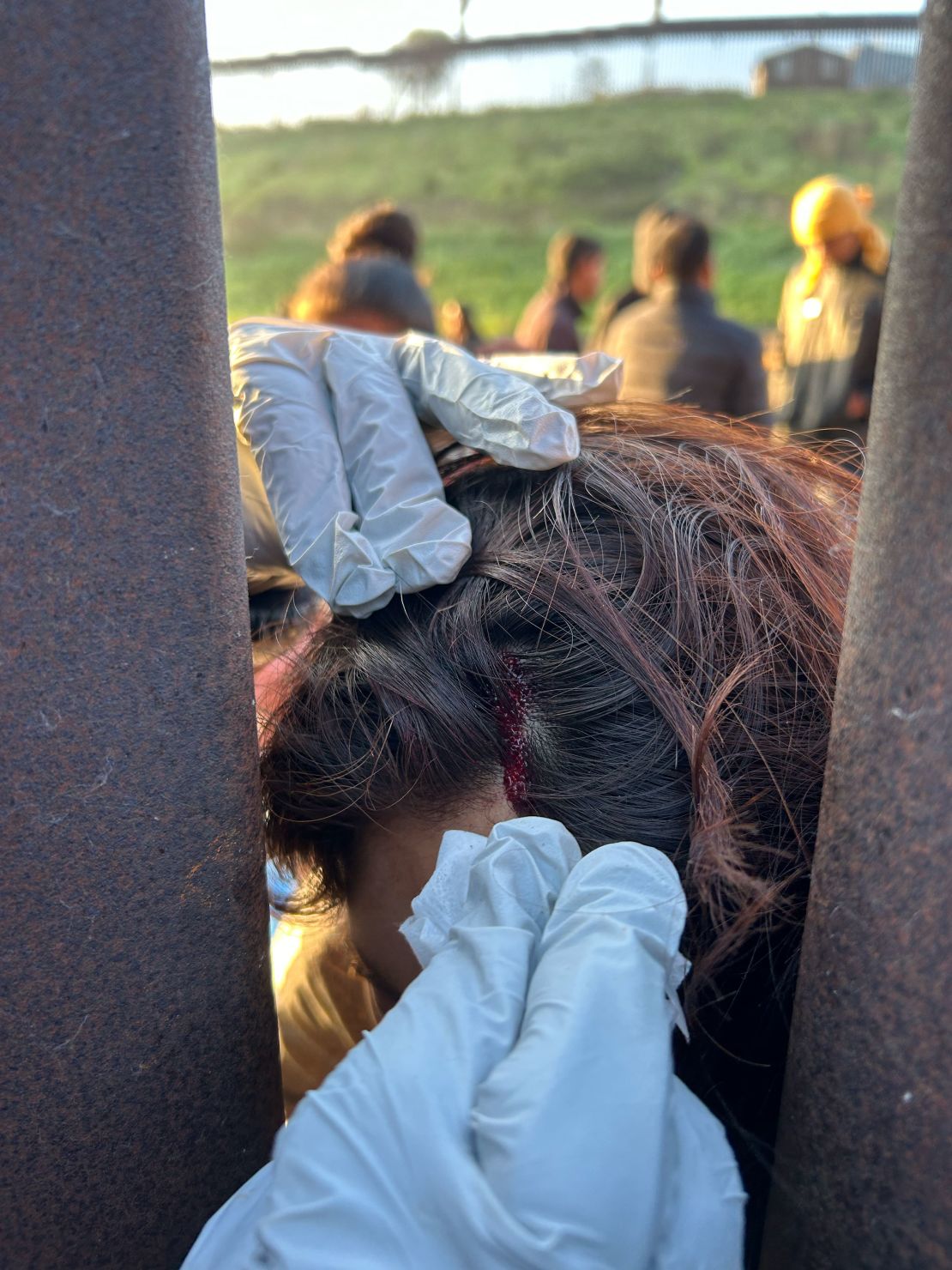
Now, attorneys are asking a judge to rule that the federal government is legally required to swiftly move these children to safe and sanitary facilities. The move came on the same day President Joe Biden traveled to the border to meet with Border Patrol agents, law enforcement and local officials to to hammer Republicans on walking away from a Senate border deal. A decision in their favor could potentially set legal precedent for states beyond California.
“For at least a year now, children have been held in these egregious conditions for varying lengths of time, and there is no reason to believe that the situation will resolve on its own,” Neha Desai, senior director of Immigration at the National Center for Youth Law, one of the law firms behind Thursday’s legal action, said in a statement. She said she saw dozens of children and families at one of the multiple sites she visited this week.
CBP did not immediately respond to a request for comment.
Thousands of asylum seekers — from countries ranging from Mexico and Venezuela to China and India — have made their way to these makeshift camps in remote sections of the California desert since last spring. In order to start a claim for asylum, migrants must first present themselves to Border Patrol agents, who need to transport them for immigration processing. After that, they are either released into border communities or held in federal custody as they await the opportunity to convince the US government that they have legitimate chance of persecution if forced to return to their home country. Many end up being deported.
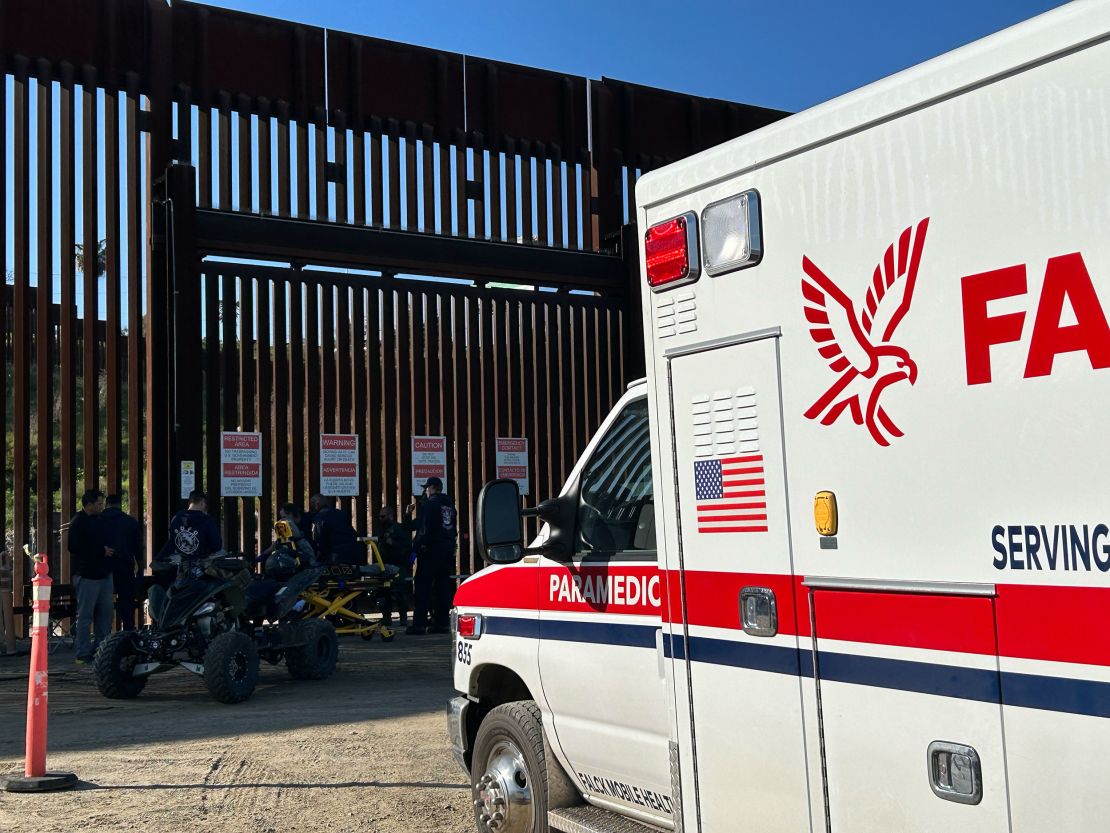
The influx of migrants waiting to start this process coincides with the largest backlog in asylum cases in US history. More than 3.3 million immigration court cases remain in the queue, according to data from Syracuse University’s Transactional Records Access Clearinghouse, which tracks immigration court data. Many wait years for their day in court.
While aid workers report the number of migrants at the camps has dropped in recent months, amid ramped up enforcement by authorities on the Mexican side of the border, they say dozens of children are still arriving to these sites without food, water or shelter.
In various locations along the border in the San Diego area, Thursday’s declarations allege, migrants are dropping from a 30-foot wall made of sharp-edged metal bars–some end up trapped between the primary and secondary border walls, unable to escape. In other locations, tents made from tarps by volunteers help protect against the heat or cold, but aid workerstold CNN that the intense winds often blow them apart. The sites are littered with trash and at times filled with smoke from the fires migrants burn to keep warm. During rainstorms, the camps fill with mud and migrants struggle to stay dry.
A watchdog within the federal government itself has even “raised concerns” about conditions in California months ago. The Department of Homeland Security’s Office for Civil Rights and Civil Liberties wrote in September in response to a civil rights complaint filed by attorneys that it had “raised concerns” with CBP and advised that the agency “have humanitarian assistance plans in place to ensure these conditions do not recur.”
The attorneys behind the new legal action argue in court filings that Border Patrol’s actions demonstrate that the agency has assumed authority over the migrants, with declarations noting that agents have regularly patrolled the camps, watched them with surveillance cameras, transported migrants to the tents, placed wrist bands on them, conducted body searches, told them where to stand and threatened them with losing their chance at asylum if they leave.
The attorneys also suggest that the agency “appears to exercise discretion as to how quickly it processes individuals,” stating that some of the sites had previously been cleared of migrants in advance of visits from higher-level Homeland Security officials. And just yesterday, in advance of Thursday’s court action, volunteers said that migrants were once again cleared from at least one of the camps and cell phone video reviewed by CNN showed that bulldozers had been brought in to take down makeshift shelters.
The declarations filed as part of this new legal challenge came from aid workers, attorneys and a doctor, as well as a child and two fathers who were at the camps this month. They allege children have gone days without eating, and at night, their cries can be heard throughout the camp.
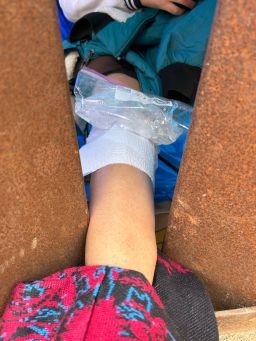
One aid worker described how a mother told him she had fallen from the border wall with her one-year-old daughter strapped to her back, but says the woman refused to seek medical attention for herself and her child at a hospital because a Border Patrol agent told her it could imperil their immigration chances. The declarations also described instances in which aid workers had to orchestrate emergency medical care for children in serious distress. Among them: an 8-year-old boy who suffered seizures after having his medicine taken away by Mexican authorities, an infant who was listless and vomiting and other children who appeared to be hypothermic.
Some alleged that Border Patrol agents saw that children were suffering but did little about it. In one case, an attorney said agents watched as parents held a baby above a fire to keep their child warm. In the government’s absence, volunteers and aid workers said they have stepped in to provide food and shelter and have called 911 at times of medical emergencies — and around a dozen volunteers and advocates have characterized the situation as inhumane and unsustainable in sworn declarations and interviews with CNN.
“Without the lifesaving support that volunteers have been providing for months, who knows how many children’s lives would have been lost,” Desai said in her statement.?“It is the responsibility of the government – NOT humanitarian volunteers – to ensure that these children’s most basic needs are met.”
Theresa Cheng, a California doctor and?civil rights?lawyer who has volunteered at camps, was alarmed by what she witnessed, calling it “apocalyptic” in her declaration. She said she saw children as young as 5 years old waiting days for immigration processing. At some of the camps, she said, she had to step in and provide medical attention to migrants of all ages.
She said she saw a young woman suffering from a stroke, a pregnant woman about to give birth, tiny newborns in need of more formula and elderly people crossing the border using walkers.
“This population,” she told CNN, “is a lot more vulnerable than what people expect it to be.”
What should we investigate? Email us at [email protected] and [email protected].



